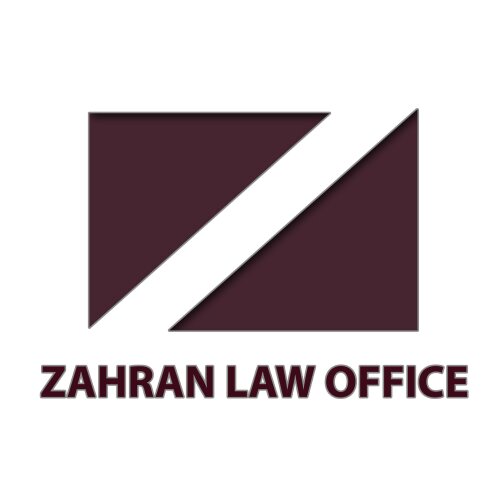Best Private Equity Lawyers in Egypt
Share your needs with us, get contacted by law firms.
Free. Takes 2 min.
Or refine your search by selecting a city:
List of the best lawyers in Egypt
About Private Equity Law in Egypt
Private equity is a vital sector in Egypt's evolving financial and business landscape. It involves investment funds, typically structured as limited partnerships, which acquire shares in private companies or public corporations with the intention of restructuring, expanding, or improving profitability before eventually exiting the investment. In Egypt, private equity has gained momentum over the last two decades, particularly as reforms have increased the attractiveness of the local market to both domestic and international investors. Private equity transactions in Egypt commonly target sectors such as healthcare, education, consumer goods, and technology.
Why You May Need a Lawyer
Securing a lawyer with experience in private equity is highly recommended due to the complexities involved in structuring and executing such transactions in Egypt. Common situations where legal help is crucial include:
- Setting up or advising on the creation of private equity funds.
- Drafting and negotiating investment agreements and shareholder agreements.
- Conducting due diligence on target companies.
- Navigating cross-border investments and ensuring compliance with Egyptian law.
- Obtaining necessary regulatory approvals from authorities such as the Financial Regulatory Authority (FRA).
- Assisting with exit strategies, including public offerings or private sales.
- Addressing disputes arising from investments.
Local Laws Overview
Private equity activity in Egypt is governed by several key laws and regulatory frameworks:
- Companies Law No. 159 of 1981: Lays out the formation, governance, and dissolution of joint stock companies and limited liability companies, which are commonly used in private equity.
- Investment Law No. 72 of 2017: Aims to promote foreign direct investment and provides incentives and guarantees for investors, including private equity funds.
- The Financial Regulatory Authority (FRA): Regulates non-banking financial markets, including the licensing and operation of investment funds and managers.
- Capital Market Law No. 95 of 1992: Regulates public offerings, trading, mergers, and acquisitions, relevant to buyouts and exits in private equity deals.
- Antitrust and Competition Law No. 3 of 2005: Applies to M&A activity and prohibits anti-competitive practices.
- Foreign Ownership Restrictions: There are some sector-specific limits on foreign ownership, so sector-based legal advice is necessary.
Navigating these regulations requires careful legal guidance to ensure compliance and to leverage potential benefits under Egyptian law.
Frequently Asked Questions
What is the process for setting up a private equity fund in Egypt?
The process involves selecting the appropriate legal structure, registering with the Financial Regulatory Authority, and complying with capital and governance requirements. Legal counsel is essential to ensure the fund's structure satisfies both investor needs and regulatory standards.
Can foreign investors participate in private equity in Egypt?
Yes, foreign investors are generally welcome in Egyptian private equity deals, although there may be restrictions in some sectors such as real estate, defense, or the media. Certain approvals or additional requirements may apply.
What role does the Financial Regulatory Authority (FRA) play?
The FRA oversees licensing, regulatory compliance, and ongoing supervision of private equity funds and managers. Approval from the FRA is required to operate a fund in Egypt.
How are private equity investments typically structured in Egypt?
Most investments are structured through share acquisitions, either in the form of majority or minority stakes. Legal agreements cover management, rights, obligations, and exit mechanisms.
What are common exit strategies for private equity in Egypt?
Exits may occur through initial public offerings (IPOs), sales to strategic buyers, sale to another private equity fund, or buybacks by company founders or management.
Are there tax implications for private equity investments in Egypt?
Yes, there are taxes on capital gains, dividends, and sometimes on transfers of shares. The specifics depend on the structure of the investment and the investor's domicile, so specialized legal and tax advice is necessary.
Is due diligence important before making a private equity investment?
Absolutely. Legal due diligence identifies potential issues related to corporate governance, contracts, compliance, liabilities, and intellectual property, minimizing investment risk.
Do private equity deals need to be registered with any government body?
Yes, certain acquisitions, fund formations, and changes of ownership must be registered with the FRA, General Authority for Investment and Free Zones (GAFI), and other sector-specific authorities.
What protections exist for minority investors in Egypt?
Minority protections can be negotiated in shareholders' agreements, including veto rights and access to information. Egyptian company law also grants some statutory safeguards.
Can disputes arising from private equity deals be resolved through arbitration?
Yes, arbitration is a recognized dispute resolution mechanism in Egypt and frequently chosen in private equity agreements, offering a private and streamlined alternative to local courts.
Additional Resources
If you are seeking further information or assistance regarding private equity in Egypt, the following resources can be helpful:
- Financial Regulatory Authority (FRA): The main regulatory body for financial markets, including private equity funds and managers.
- General Authority for Investment and Free Zones (GAFI): The primary government institution for registering companies and managing investment incentives.
- Egyptian Private Equity Association: An industry group providing support, networking, and sector information.
- Reputable law firms with dedicated private equity practices: Many international and Egyptian law firms have specialized teams to advise on fund structuring, compliance, M&A, and exits.
Next Steps
If you are considering a private equity investment or fund formation in Egypt, the following steps can help ensure compliance and protect your interests:
- Define your investment goals and assess which sectors and structures suit your needs.
- Contact a qualified Egyptian lawyer with expertise in private equity transactions.
- Prepare the necessary documentation for fund registration, investment agreements, or due diligence.
- Consult with your lawyer on compliance with regulatory requirements and to obtain the necessary approvals from the FRA and GAFI.
- Establish robust governance and reporting systems for ongoing compliance.
- Plan your exit strategy with legal guidance to optimize returns and ensure a smooth transition.
Seeking professional legal advice at every stage of the private equity process in Egypt is essential. Proper guidance can help safeguard your investment, ensure regulatory compliance, and unlock the full potential of private equity opportunities in the country.
Lawzana helps you find the best lawyers and law firms in Egypt through a curated and pre-screened list of qualified legal professionals. Our platform offers rankings and detailed profiles of attorneys and law firms, allowing you to compare based on practice areas, including Private Equity, experience, and client feedback.
Each profile includes a description of the firm's areas of practice, client reviews, team members and partners, year of establishment, spoken languages, office locations, contact information, social media presence, and any published articles or resources. Most firms on our platform speak English and are experienced in both local and international legal matters.
Get a quote from top-rated law firms in Egypt — quickly, securely, and without unnecessary hassle.
Disclaimer:
The information provided on this page is for general informational purposes only and does not constitute legal advice. While we strive to ensure the accuracy and relevance of the content, legal information may change over time, and interpretations of the law can vary. You should always consult with a qualified legal professional for advice specific to your situation.
We disclaim all liability for actions taken or not taken based on the content of this page. If you believe any information is incorrect or outdated, please contact us, and we will review and update it where appropriate.
Browse private equity law firms by city in Egypt
Refine your search by selecting a city.

















